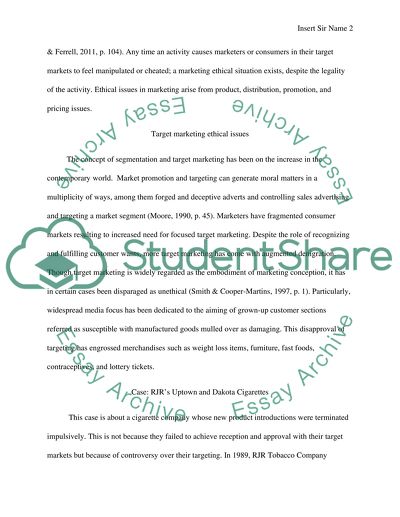Cite this document
(“Marketing Ethics Research Paper Example | Topics and Well Written Essays - 1500 words - 1”, n.d.)
Retrieved from https://studentshare.org/marketing/1606452-marketing-ethics
Retrieved from https://studentshare.org/marketing/1606452-marketing-ethics
(Marketing Ethics Research Paper Example | Topics and Well Written Essays - 1500 Words - 1)
https://studentshare.org/marketing/1606452-marketing-ethics.
https://studentshare.org/marketing/1606452-marketing-ethics.
“Marketing Ethics Research Paper Example | Topics and Well Written Essays - 1500 Words - 1”, n.d. https://studentshare.org/marketing/1606452-marketing-ethics.


